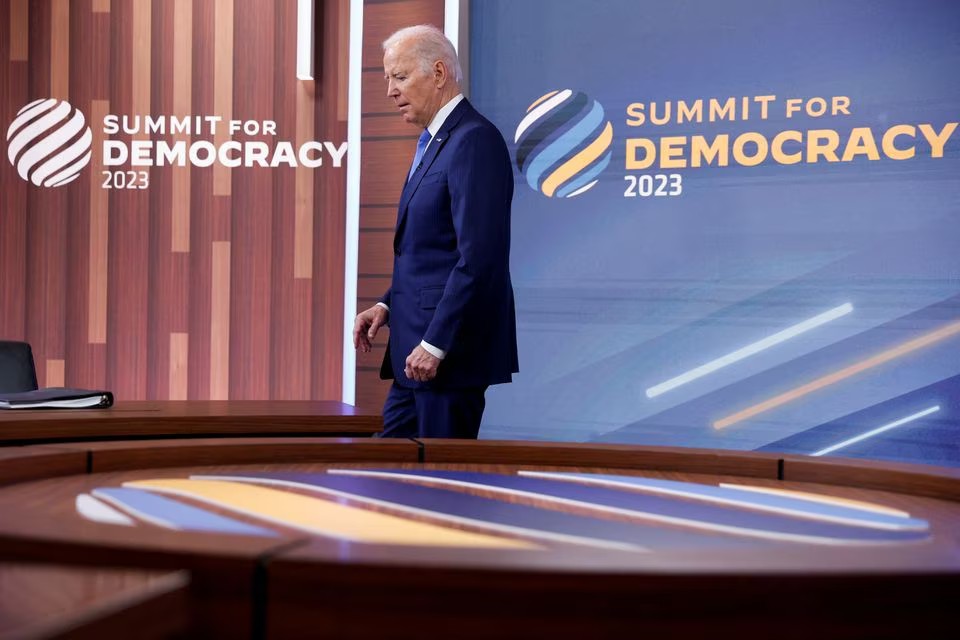WASHINGTON, (Reuters) – U.S. President Joe Biden today announced new funding to bolster democracies around the world amid criticism his administration has made little progress in advancing human rights and democracy as a focus of its foreign policy.
Biden announced he planned $690 million in funding to help fight corruption, support free and fair elections and advance technologies that support democratic governments at a second White House-led Summit for Democracy. He announced over $400 million for similar programs in 2021 when he last held such an event.
“We’re turning the tide here. As we often say, we’re at an inflection point in history here, when the decisions we make today are going to affect the course of our world for the next several decades for certain,” Biden said.
Rights advocates say there is little evidence the countries joining the summit have made progress on improving their democracies, and that there is no formal mechanism to hold participants to the modest commitments made at the first meeting even as Biden and South Korea announced plans to host a future third summit.
Freedom House said this month that global freedom had declined for the 17th consecutive year, but there are signs the tide is turning, said Katie LaRoque, the monitoring group’s deputy director for policy and advocacy, explaining that while 35 countries’ scores declined in Freedom House’s annual rankings, 34 countries improved.
Out of the countries that participated in the first Summit for Democracy, 77 countries’ scores remained the same in 2022, 17 declined and only 16 improved.
The world has seen big changes since the first summit, with countries emerging from the global pandemic and Russia’s invasion of Ukraine.
Ukrainian President Volodymyr Zelenskiy at the summit pleaded for more weapons to help defeat Russia. Moscow’s invasion of Ukraine in February 2022 has killed tens of thousands and reduced cities to rubble.
“The enemies of democracy must lose,” Zelenskiy said.
More recently, a move by Prime Minister Benjamin Netanyahu’s coalition government to weaken the power of Israel’s judiciary; Mexico’s move to gut its election oversight body; and India’s decision to disqualify a top opposition political leader have all cast a pall over Biden’s repeated claims that democracies have become stronger.
In addressing the summit on Wednesday, Netanyahu voiced confidence that a political compromise could be reached on the judicial reforms, which he argued could be reconciled with civil liberties even as his opponents have accused him of seeking to curb judicial independence.
The summit is co-hosted by the governments of Costa Rica, the Netherlands, South Korea and Zambia. The event involves 120 countries including Taiwan, civil society groups and technology companies.











